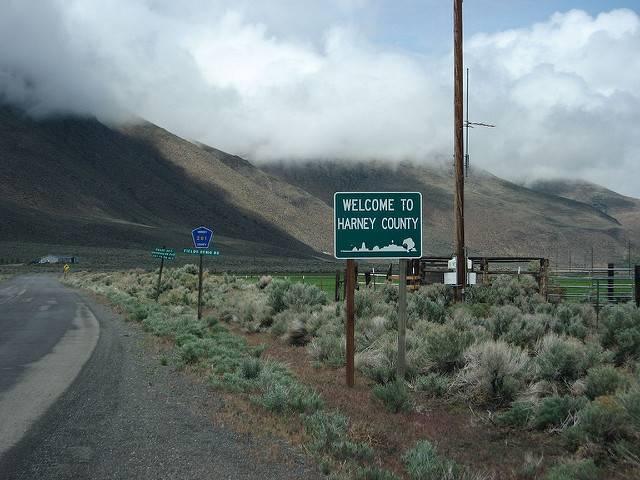
If House Republicans can gain the support of the Senate and score Donald Trump’s signature, at least 3.4 million acres of publicly-owned land could be sold off in the next few years.
That is the intent behind H.R. 621, a bill submitted last week by Rep. Jason Chaffetz of Utah. Called the Disposal of Excess Federal Lands Act of 2017, the proposed law would allow these public lands to be sold at a “fair market value as determined by an independent appraiser” in order to reduce the federal government’s debt.
The bill would affect lands in 10 western and central U.S. states: Arizona, Colorado, Idaho, Montana, Nebraska, Nevada, New Mexico, Oregon, Utah and Wyoming.
Chaffetz claims the amount of acreage for sale is a sliver of the Bureau of Land Management’s total landholdings, which amount to 958 million acres.
Environmental NGOs, associations of recreational hunters and fishermen, and state and local governments – which would supposedly benefit from the policy -- are not having it.
Denigrating these lands as “disposable” is only the start of the growing outrage. The Wilderness Society, for example, accused the Trump administration and House Republicans of going against the wishes of many Americans, and says such a sale could have a negative impact on local economies.
Bristling at Chaffetz’s assertion that these lands are “worthless” to American taxpayers, the Wilderness Society’s senior government relations director pulled no punches.
“What’s worthless to allies of the fossil fuel industry for all except oil and gas extraction has irreplaceable value to the American people for hiking, hunting, camping, fishing, and countless other pastimes that Teddy Roosevelt first acknowledged were central to the strength and well-being of this nation,” Alan Rowsome of the Wilderness Society said in a public statement.
“Today, those outdoor pastimes have a $646 billion value and contribute millions of American jobs to rural communities without harming the lands and waters themselves.”
Chaffetz’s bill is the first of a one-two punch to eliminate the Bureau of Land Management’s (BLM) oversight of federally-owned lands. On the same day he submitted H.R. 621, the Utah Republican introduced another bill that would eliminate any law enforcement functions from the BLM and the National Forestry Service.
The bills sparked protests across the country as hunters, anglers and outdoorsmen -- and women -- spoke out against any potential sale.
In Helena, Montana, over 1,000 citizens attended a rally in the state’s capitol building. Gov. Steve Bullock told the crowd: “This ain’t about politics, whether you’re a Democrat, or Republican, or Libertarian, or vegetarian, these lands belong to you. They’re our heritage. They’re our economy. They’re our quality of life. Jeopardizing what it means to be a Montanan and transferring those lands is wrong-headed.”
Chaffetz claims the lands deemed as disposable are based on conclusions made almost 20 years ago by the Department of the Interior during the Bill Clinton administration. But in the letter addressed to the then-House committee chair overseeing resources management, the Interior Department official noted: “Many lands identified appear to have conflicts which my preclude them from being considered for disposal or exchange.” Those conflicts include “critical natural or cultural resources,” he said.
Those who love the outdoors took issue with Chaffetz’s assessment of these public lands’ value. In an interview with the Guardian, Jason Amaro, representing the Arizona chapter of the Backcountry Hunters and Anglers (BHA), described the pending legislation as a “land grab,” and pointed out the audacity of politicians who tout local control but in fact have asked for little local input as this bill was drafted.
The BHA’s national president and CEO, Land Tawney, has already been critical of what he describes as the 115th Congress’ hostility to public lands. “Some of our elected officials are wasting no time in paving the way to steal our outdoor heritage,” Tawny said earlier this month. “If it’s a fight they want, they’ve got one coming – and I’m betting on public lands hunters and anglers.” Tawney promised a “hornet’s nest” on a Facebook Live post if this bill progresses in Congress.
Even the testosterone-laden Men’s Journal ridiculed the bill. “It’s clear that some of this ‘disposable land’ is far from worthless,” wrote staffer Ryan Krogh, “especially for hunters, anglers, hikers and bikers.”
The bill may also have an ally in presumed Interior Secretary Ryan Zinke, now a U.S. Representative for Montana.
On one hand, Zinke has worried environmentalists with his call to open more BLM lands to energy development. But during his confirmation hearings last month, Zinke was on the record saying he opposed any sales or transfers of public lands to private interests or U.S. states.
Image credit: Ken Lund/Flickr

Leon Kaye has written for 3p since 2010 and become executive editor in 2018. His previous work includes writing for the Guardian as well as other online and print publications. In addition, he's worked in sales executive roles within technology and financial research companies, as well as for a public relations firm, for which he consulted with one of the globe’s leading sustainability initiatives. Currently living in Central California, he’s traveled to 70-plus countries and has lived and worked in South Korea, the United Arab Emirates and Uruguay.
Leon’s an alum of Fresno State, the University of Maryland, Baltimore County and the University of Southern California's Marshall Business School. He enjoys traveling abroad as well as exploring California’s Central Coast and the Sierra Nevadas.














